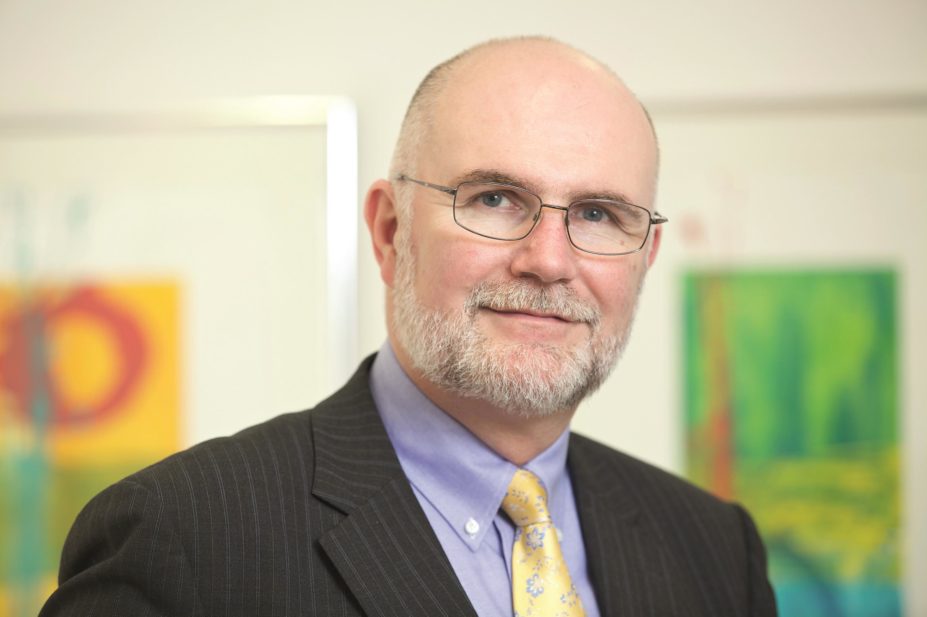
British Medical Association
Mark Porter is the British Medical Association’s (BMA) council chairman and a consultant anaesthetist at the University Hospitals Coventry and Warwickshire (UHCW) NHS Trust. In the past he has been a clinical director of his department, and the chairman of the medical staff local negotiating committee. He was closely involved in negotiating the 2003 consultant contract, and while he was a junior doctor he was the chairman of the BMA junior doctors committee from 1997 to 1998.
What were the main driving factors behind the BMA’s campaign calling on all political parties to stop playing games with the NHS?
We started the campaign because no parties were doing anything to address the real problems of the NHS and the extent of the resource gap, which is expected to rise to £30bn per year over the next parliament. Putting aside whether the £22bn in efficiency savings proposed by NHS England can really be achieved, politicians have made unfunded promises about addressing the remaining £8bn gap in resources. In addition, they have spouted promises about seven-day services at no extra cost, increased access at no extra cost, 8,000 extra GPs to be found at the back of a cupboard at no extra cost.
The emptiness of some of the promises from political parties has become more exposed as the result of our campaign
The language of our campaign has been picked up by the political interrogators and the parties have become noticeably more careful and cognisant of our criticisms. Has the campaign changed British democracy to make it a fundamentally more honest and evidence-based process? I’m not sure that was ever on our achievable list. But the emptiness of some of the promises has become more exposed as the result of our campaign.
What has been the BMA’s most successful campaign to date and why?
Over the past ten years, we’ve focused on tobacco and we’ve advocated a number of public health measures, including plain packaging, and action against smoking in public places and smoking in cars. We think we’ve had a direct effect on health in this country as a result of these campaigns, and on the changes that have been made, culminating most recently on the adoption of a policy around plain packaging — although we’ve yet to see that fully implemented.
How important is it to set measures of success and failure for campaigns?
It is important but the guilty follow up is that it doesn’t always happen. The best campaigns have an “ask” and that “ask” is achievable, and our smoking campaigns have fallen into that category. Looking at our ‘No more games’ campaign, we didn’t really expect political parties to stop their games. But we allocated our resources to push health up the political agenda and get our language to be the language of discourse. Putting aside that health was always going to be on the election agenda, I think we’ve been fairly successful.
We’ve also talked recently about repealing the Health and Social Care Act 2012 but we never really expected the government to repeal it a year after it was passed. However, it was important to our members that we pressed the political parties in public about it. So sometimes you have multi-layered objectives to do with raising and airing an issue rather than necessarily expecting ultimate resolution.
How does the BMA engage grassroots membership to support campaigns?
We get a lot of support for our campaigns. We’re a robustly democratic organisation and usually our campaigns come up through member requests from our conferences. You can’t please everyone all the time, but there was a big consensus around our recent campaigns.
Of course, we are fortunate in being able to use all the various social media technologies to engage the interest and enthusiasm of our members in a way that wasn’t possible in the past.
How do you balance your international outlook and the work that you do on human rights, fair and ethical medical trade, with representing the interests of doctors working in the UK?
The BMA was established as a professional and scientific association and that remains an important part of our work. For example, our members were very concerned about our reports of labour rights abuses in the surgical instruments industry in Pakistan and this has led to us making recommendations for those involved in procurement for the NHS. Not only is this international work in line with our humanitarian and scientific objectives, it also gives us a platform, credibility and reach that we wouldn’t achieve if we confined ourselves narrowly to items that would lead newspapers to say: “Oh, it’s the doctor’s union banging on again.”
I fundamentally reject the rubbish written in the newspapers about how doctors won’t work a seven-day week
Why are many doctors opposed to seven-day working?
The NHS is already open 24 hours a day, seven days a week, every day of the year and most doctors take part in that service. So I fundamentally reject the rubbish written in the newspapers about how doctors won’t work a seven-day week. We reject the blithe promises that it’s possible to take a five-day elective service and make it a seven-day service, either at no extra cost or without reducing any of the elective offerings now available in a five-day service. That’s deceiving people about what’s possible with the resources we currently have.
Will changes to the hospital doctors’ contract to incorporate seven-day working affect the wider healthcare team?
We think there should be a focus on making resources available for current urgent and emergency services before anyone makes unfunded promises to make elective services available at weekends. At present, hospital doctors working at weekends are aware that some services, such as many diagnostics, slow down. So someone who needs a non-emergency, non-routine scan will get put on the Monday list. We particularly notice that discharging patients over a weekend can be difficult because the hospital doesn’t employ consultants to do the discharge ward round and it may not be possible to put a social care package in place to support someone during convalescence after they leave an acute hospital.
Within hospital pharmacy there is currently a very good service for urgently needed drugs, but many places aren’t funded to do the standard take-out medicines, medicines to support day-case patients going home and those being discharged into social and continuing care services.
I’m not going to fall into the trap of criticising pharmacists in the way that doctors have been criticised
All the resources of an NHS hospital need to be brought together to provide a seven-day service, and the inclusion of pharmacy is crucial. Am I saying that pharmacists should be working seven days? Of course not, I’m not going to fall into the trap of criticising pharmacists in the way that doctors have been criticised. Pharmacists already put in a major commitment and you can’t just extend it at no cost, without saying “what are we going to reduce during the week to allow this to happen?” Recruitment of pharmacists is ongoing through the universities but you can’t just generate new staff in a few months. It’s the fundamental dishonesty of politicians in refusing to acknowledge this reality that we are reacting against.
How can we solve the UK’s GP shortage problem?
There is no immediate cure, but there are two big things that can be done. First, we need to recognise that GP funding is on a different basis than acute provider organisations and social care. GP practice is essentially a collection of contracting small businesses that don’t have the same resilience to cope as larger organisations that can call on emergency loans. When you drive a general practice into deficit, they simply have to close and walk away, so resources are doubly important for general practice.
The second thing is to stop driving people out of the profession — both at the start and at retirement. Recruitment into general practice is poor because people are voting with their feet and going elsewhere. In addition, GPs in their mid-50s are fed up with the increased workload and constant denigration in the press about what they earn, what they do, and not being prepared to work for their patients at weekends. Government access targets imply that GPs can’t be bothered to work at weekends, but the experience of GPs trying to increase their access times indicates less efficient usage in the non-traditional times. Stories abound of GPs seeing only three patients during a Saturday session, and that’s why they don’t do it. The time to extend your offer radically isn’t the time when you’re cutting resources out of that sector because that makes it unviable and impossible.
Pharmacists can bring their skills and efficiency to prescription issues, such as polypharmacy
What are the benefits for patients of pharmacists working in GP surgeries?
Just as we can’t deliver hospital medicine without expert pharmacists, we can’t provide community general practice without pharmacy involvement, and the question is how you organise it. In some places we’ll continue to separate the services but larger practices have the ability to employ pharmacists and make them part of the team. We’re moving towards delivering specialist services by appropriately qualified specialist practitioners and pharmacists have a big part to play in that. For example, pharmacists can bring their skills and efficiency to prescription issues, such as polypharmacy. A specialist pharmacist can step back and review what’s being done to a patient as a whole rather than treating them as a collection of separate disorders.
Which political party’s policies do you think will best serve healthcare in the UK?
I don’t think any of the political parties truly address the problems of healthcare in the UK and also the opportunities that those problems bring. We need to rebalance what we do in terms of integrating health and social care properly and assessing what proportion of the nation’s wealth should be spent on health and better living. Politicians need to do this in an honest way that isn’t just predicated by finding slogans with which to beat each other up over the despatch box.
You may also be interested in

Health officials could speed up pharmacy removal process as pharmacy minister says Jhoots falls ‘well below the mark’

Jeremy Miles praises ‘incredible’ work of pharmacists and announces review of general practice pharmacy
